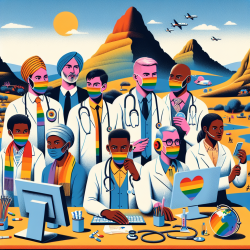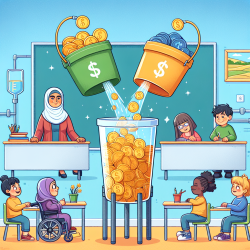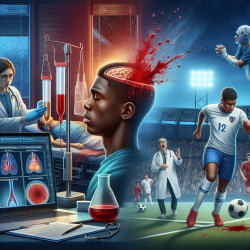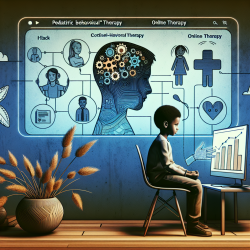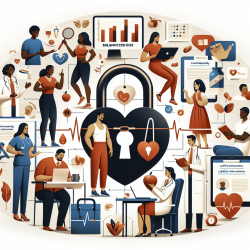Introduction
In the realm of speech-language pathology, understanding the socio-cultural dynamics affecting health outcomes is crucial. The research article titled "Conceptualizing LGBT Stigma and Associated HIV Vulnerabilities Among LGBT Persons in Lesotho" provides invaluable insights into the complex interplay between stigma, mental health, and HIV vulnerabilities. This blog post aims to translate these findings into actionable strategies for practitioners, particularly those providing online therapy services to schools, like TinyEYE.
The Interplay of Stigma and Health
The research highlights the pervasive stigma faced by LGBT individuals in Lesotho, which significantly impacts their mental and sexual health. This stigma manifests in various forms, including social exclusion, violence, and healthcare barriers, all of which contribute to a syndemic of depression, substance use, and increased HIV vulnerabilities.
For practitioners, understanding these dynamics is essential. By recognizing the socio-cultural mechanisms at play, therapists can tailor their interventions to address not only speech and language issues but also the broader psychosocial factors affecting their clients.
Implementing Research Findings
- Community Engagement: The study underscores the importance of community-led support and services. Practitioners can collaborate with local LGBT organizations to create safe spaces for individuals to express themselves and seek support.
- Education and Awareness: Raising awareness about the impacts of stigma and promoting acceptance within schools and communities can help reduce the barriers faced by LGBT individuals. Online therapy platforms can incorporate educational modules to foster understanding and empathy among students and staff.
- Tailored Interventions: Practitioners should consider the unique challenges faced by LGBT individuals in Lesotho, such as substance use as a coping mechanism. Tailored interventions that address these specific issues can lead to more effective outcomes.
Encouraging Further Research
While the study provides a comprehensive overview of the challenges faced by LGBT individuals in Lesotho, there is still much to learn. Practitioners are encouraged to engage in further research to explore the nuances of stigma and its impact on health outcomes. By contributing to the growing body of knowledge, therapists can play a pivotal role in shaping evidence-based interventions that promote the well-being of LGBT individuals.
Conclusion
The findings from the research article offer a roadmap for practitioners aiming to improve health outcomes for LGBT individuals in Lesotho. By implementing community-led initiatives, promoting education and awareness, and tailoring interventions to address specific challenges, therapists can make a meaningful impact. To read the original research paper, please follow this link: Conceptualizing LGBT Stigma and Associated HIV Vulnerabilities Among LGBT Persons in Lesotho.
